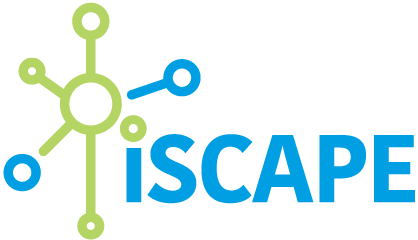
Exploitation (Work package 7)
Research message
This part of the iSCAPE project translates local experiences in general and shared knowledge in order to improve the air quality in cities worldwide. Technological outputs will be generalised with impact on regulatory consequences and with regards to population exposure as well as human health.
Main aims
A worldwide exploitation campaign is planned within iScape. The aims of this campaign are to:
- Generalise the relevant deliverables of the project.
- Liaise the lessons learned with regulatory consequences regarding population exposure as well as human health.
- Provide for recommendations to local urban decision-makers for mitigating of atmospheric pollution.
- Collaborate with other European projects in creating advance technological improvements with significant spin-offs.
- Promote specific deliverables with commercial value in the international industry, and
- Identify European and worldwide developing areas where the project outcomes will maximise the outcome of interventions and provide expertise in areas with significant impact.
Main outcomes
This WP provides the approach for exploitation and cooperation with related initiatives and stakeholders. It generalises solutions for urban infrastructure and related decision-makers. It provides behavioural recommendations for urban anthropogenic activities to population exposure and human health with specific targets on: evaluation of Road transport emissions; calculating outdoor concentrations of pollutants; improving the estimate of personal exposure for vulnerable groups, and translating of environmental effects into health impacts.
Also, this WP provides a roadmap of deployment project technological innovations to the market by identification of episodes linking air-quality and climate change, geographical harmonisation and generalisation of conclusions from the domains of iSCAPE, sensor proliferation for outdoor and indoor monitoring and assessment of photocatalytic films in passive absorption of atmospheric pollution.
Finally, through the exploitation of lessons learnt from Living Labs as an innovation instrument for sustainable air quality improvement will be provided a horizontal integration of potential deliverables from several projects in advanced technological platforms.
Main outputs
- Exploitation Strategy – a methodology report with two intermediate updates.
- Generalisation summary of infrastructural recommendations for urban policy makers.
- Input-output link with an atmospheric dispersion model (outdoor concentrations)
- Personal exposure estimate improvement.
- Translating environmental effects into human health.
- Identification of episodes liaising air-quality with climate change.
- Geographical harmonisation and generalisation of the iSCAPE operational domains.
- Sensor monitoring experiences and technological innovations.
- Experiences from photocatalytic films in urban domains.
- Potentials and prospects with technological integration with other EU funded platforms.
- Living Labs for Air quality knowledge and policy package.
Practical use
This WP strongly promotes an inclusive approach though stakeholders, living labs, authorities, industries working in the sector of atmospheric pollution and climate change and international organisations working in developing countries. With a worldwide campaign, the project aims to become a unique flagship adding significant value of European capital worldwide and in promoting European development through concrete technological achievements.
Moreover, partners with relevant deliverables will directly take part in spin-off events and will be encouraged to interact with industry in order to explore the requirements and with regulatory authorities that will act as end-users for utilising key deliverables.
